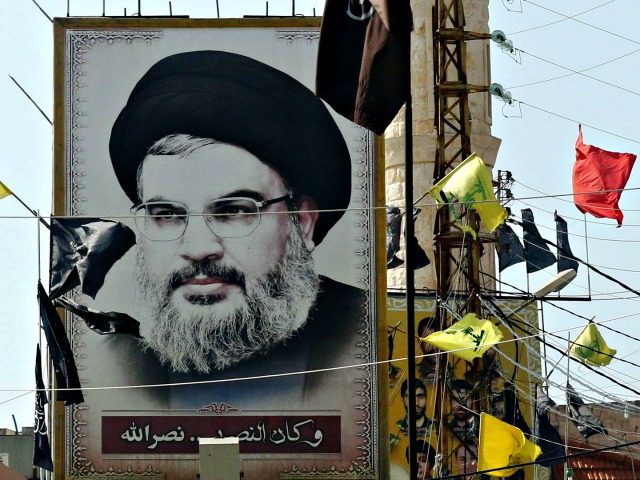After nine months, Lebanese Prime Minister Saed Hariri has finally bowed to reality.
Hezbollah and its allies won the elections last May. And elections have consequences — which is why the U.S. should withdraw its support from the Lebanese government.
Immediately after the elections, Hezbollah — the Iranian Revolutionary Guards’ Lebanese Division — demanded control over the Health Ministry. It demanded a government ministry for its Sunni allies, who ran against Hariri’s Future party and reduced its share of the vote by a third. Hezbollah demanded that its Christian allies receive control over the Ministry of Defense.
Hariri rejected these demands – particularly Hezbollah’s demand that its Sunni allies receive a cabinet ministry at his expense. But in the end, the mathematics of elections and power won out.
Hariri and his allies bowed to all of Hezbollah’s demands. Hezbollah controls the Health Ministry through Hezbollah Chief Hassan Nasrallah’s personal physician, Jamil Jabak. Hezbollah controls the Defense Ministry through Elias Bou Saab.
The majority of government seats are held by Hezbollah members and Hezbollah allies. That is, while Hariri retained his seat at the head of Lebanon’s government, he no longer controls it. Hariri governs at Hezbollah’s pleasure. He has no independent power, even among the Sunnis, as Hezbollah’s Sunni allies represent a rising and already significant force in Sunni Lebanese affairs.
Hezbollah’s now undeniable control of the government of Lebanon places the Trump administration in a quandary. On the one hand, the Trump administration is committed to curtailing Iranian power and influence in the Middle East. And while the U.S. has been focused on limiting Iranian power in Syria, Iran’s foreign legion just swallowed Lebanon lock, stock and barrel.
The U.S. is a major supporter of the government of Lebanon. U.S. aid to Lebanon in 2018 totaled $236 million, $90 million of which came in the form of military aid.
The fear in Washington is that if, in accordance with U.S. law, the U.S. ends its financial and military support for the Hezbollah-controlled Lebanese government and for the Hezbollah-controlled Lebanese Armed Forces (LAF), the vacuum it forms will not go unfilled. Russia may choose to replace the U.S. and so serve as the spoiler, diminishing U.S. power in the region while expanding its own.
On the other hand, if the U.S. does not stop supporting the LAF and the Lebanese government it will harm its own interests in two significant ways. First, it will directly support the most dangerous international terrorist organization in the world. With Hezbollah firmly in control of the Lebanese government, the U.S. will have no way of denying that its support for the Lebanese military directly empowers Hezbollah. The same is the case for civilian monetary and other assistance to the Lebanese government. With Hezbollah in charge of the Health Ministry, for instance, it can be expected to provide health services to its terror forces and their families.
Not only is providing direct assistance to the Hezbollah-controlled Lebanese government and Armed Forces illegal under U.S. law, it is undercuts U.S. policy towards Iran. The U.S. sanctions regarding Iran and Hezbollah have diminished Iran’s ability to support Hezbollah financially. Until the sanctions were implemented, Iran’s annual support for Hezbollah totaled $700 million. That assistance has reportedly diminished as a result of the U.S. sanctions. So if continued, U.S. support for the Hezbollah-controlled Lebanese government and armed forces will make up for part of the revenues Hezbollah is losing as a result of U.S. sanctions.
Continued support for Lebanon also harms America’s reputation. Quite simply, a policy that ignores Hezbollah’s control of Lebanon will diminish U.S. standing in the region, harming its ability to deter its adversaries and enemies – first and foremost Iran and Russia.
The concern that Russia will fill the void in Lebanon is real. Today, Russia’s presence in Syria not only ensures the survival of the Iranian-controlled Assad regime, but also empowers Hezbollah and Iran to exert effective control over Syria. That, in turn, massively increases the likelihood of regional war between Iran, Israel, and Hezbollah in Syria and Lebanon, with the active participation of their junior partner, Hamas in the Gaza Strip.
Be that as it may, it is hard to see how concern over Russian empowerment in Lebanon outweighs the obvious drawbacks of continuing the current U.S. policy of arming and training the Hezbollah-controlled LAF and financing the Hezbollah-controlled Lebanese government. If the U.S ends its support, then while it is true that others may fill the void, at least American taxpayers won’t be paying salaries of their enemies.
Finally, Hezbollah’s open control over Lebanon shows that Iran already won the contest of wills relating to who will control Lebanon. The fact that it is unpleasant to acknowledge this state of affairs is no excuse for exacerbating the situation by directly financing Iran’s Lebanese proxy.
Caroline Glick is a world-renowned journalist and commentator on the Middle East and U.S. foreign policy, and the author of The Israeli Solution: A One-State Plan for Peace in the Middle East. She is running for Israel’s Knesset as a member of the Yamin Hahadash (New Right) party in Israel’s parliamentary elections, scheduled for April 9. Read more at www.CarolineGlick.com.

COMMENTS
Please let us know if you're having issues with commenting.